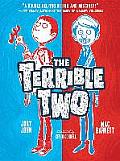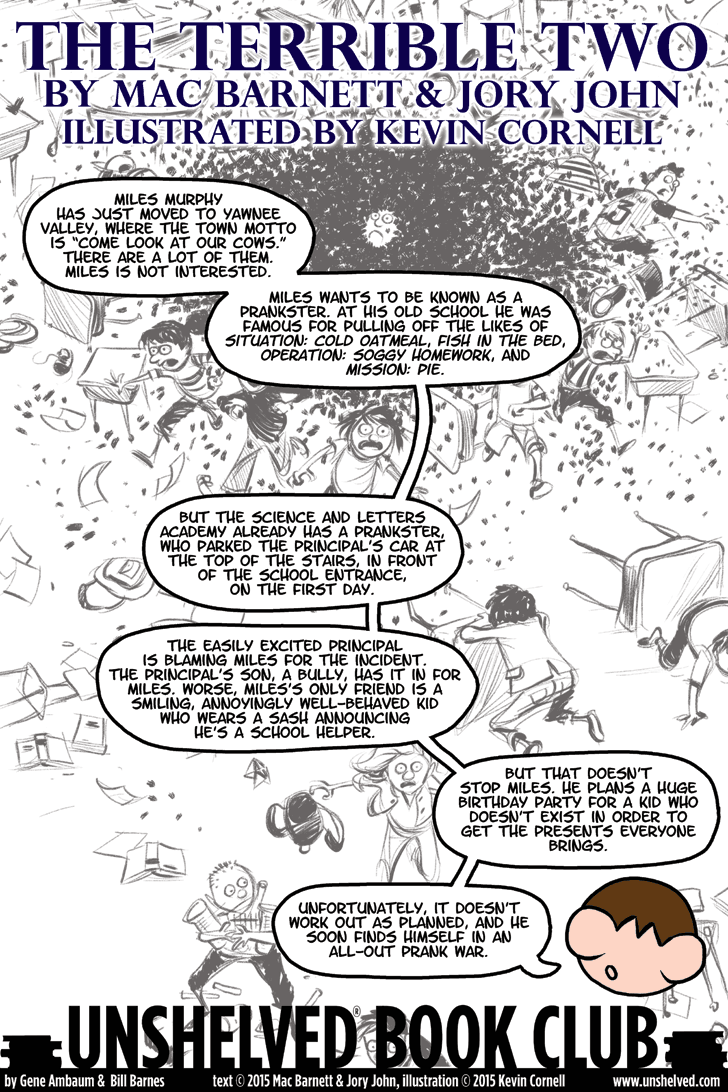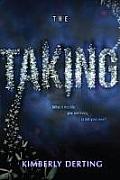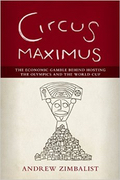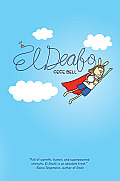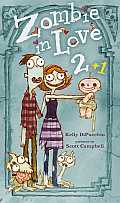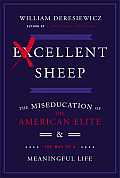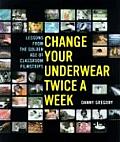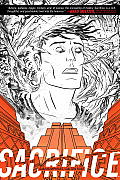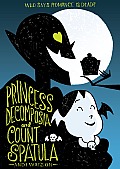Link to this review in the form of a comic strip by geneambaum tagged chapter book • humor
Link to this review by danritchie tagged coming of age • science fiction • mystery
Sixteen-year-old Kyra and her dad have always had a close relationship. But when they argue about Kyra’s college plans and her boyfriend, Austin, on the way back from her championship softball game, she makes him stop the car and runs back down the highway in tears. She stumbles, falls, and then sees a blinding white light. When she wakes up the next morning, still in her uniform behind a dumpster, she has no memory of what happened after her fall.
Certain she’ll be in big trouble for being out all night, she goes home only to find a strange man and a toddler there. Freaked out, she races over to Austin’s house. Thinking the boy who opens the door is Austin, she falls into his arms begging to know what has happened to her family. But the boy is Tyler, Austin’s younger brother, and he is amazed to see her. She has been missing for five years to the day. Her mom and dad are divorced. Her dad turned to booze and immersed himself in alien abduction theories, And the love of her life, Austin, is a senior in college, in love with her best friend, Cat.
Disillusioned and angry, as Kyra tries to come to grips with what happened, she notices she has changed. She rarely sleeps or eats yet never tires, and she has become unusually strong. Soon she is on the run from the government, trying to figure out who or what she is.
Why I picked it up: I read all of Derting’s Body Finder books and enjoyed each for her strong characters and frenetic pacing.
Why I finished it: It did not disappoint! Kara is confused and frustrated with what has happened to her. Tyler is there to provide support and levity, and her attraction to him is surprising and unexpected for Kyra. As their relationship intensifies, he is the only normal person who accepts her unconditionally.
It’s perfect for: Dana, who has read and researched everything on alien abductions. She’ll enjoy the particulars of this version — all the taken are teens, only about a third of them return (usually within two days), all with heightened senses and immune to disease. None of them know why they were chosen.
Link to this review by flemtastic tagged nonfiction
The amount of money required to host the Olympics and FIFA World Cup championships is out of control. Both organizations have so many expensive restrictions and requirements that they are pricing themselves beyond the reach of most countries. (The best estimate of the cost of the Winter Olympic Games in Sochi, Russia, was $65 billion.) Security concerns and ballooning costs have dulled the luster of hosting these world events, and claims of post-hosting economic benefits have proven to be overstated. Few countries are willing to bid anymore.
Why I picked it up: I heard the other day that Qatar is contemplating spending over $200 billion to host the 2022 World Cup. I had to read that twice as I thought it was a misprint.
Why I finished it: Both the FIFA World Cup and the Olympics choose host locations via a process that can generously be described as “opaque” and realistically described as “corrupt.” The decision to allow Qatar to host the 2022 World Cup is a prime example. It led to an investigation on the bidding process, which was apparently rigged, and it was also irrational given Qatar’s high temperatures and current lack of stadiums.
It’s perfect for: My colleague Sonja, who went to the World Cup in 2010 in South Africa. There is a large section of the book about its experience in hosting, including the cost of continuing to maintain stadiums built for World Cup matches. These had to be built to seat at least 60,000 fans, even though the most popular local teams never draw more than 10,000.
Link to this review by sarahhunt tagged graphic novel • coming of age • superhero
Cece loses her hearing at age four and combines a bulky hearing aid (it’s the 1970s) and lip-reading to understand the people around her. She’s terribly embarrassed by the receiver she has to wear around her neck and misunderstandings when she can’t see people’s mouths, like when the lights go out at a slumber party or when the person speaking on TV isn’t the one whose face you see. When she starts first grade, she gets a new tool: the Phonic Ear. She still has some trouble understanding her classmates, but a microphone her teachers wear make what they say incredibly clear no matter where they are in the classroom. She’s able to hear her teachers smoking in the lounge and even hear them flush in the restroom. She feels like a superhero with powers no one else knows about. But superheroes are also different, and that can feel lonely. When she and her older siblings watch an Afterschool Special where someone calls a deaf kid “Deafo,” (Cece thinks it sounds hilarious) her inner superhero gets a name. El Deafo is brave enough to tell her mom she doesn’t want to go to sign language class and to push back against mean friends, and sometimes that confidence spills out into her real life.
Why I picked it up: I liked the idea of her imaginary superhero self, complete with hearing aid and red cape, gaining confidence from how she’s different, even if she can’t always be that brave in real life.
Why I finished it: I felt like I was back in my own childhood when Cece felt uncomfortable spending the night at a friend’s house, dealt with a “best friend” who was just plain bossy, and got a cherry Hostess Fruit Pie from her mom after a bad day at school.
It’s perfect for: I think this would be a great classroom read for upper elementary students. It’s not only about dealing with deafness, it’s about finding yourself when everyone around you is making assumptions about what you can and can’t do.
Link to this review by geneambaum tagged horror • picture book • humor
Zombies Mildred and Mortimer have a problem; they’re new parents, and their (very much alive) new baby is freaking them out. He won’t eat zombie baby food and he sleeps through the night (when good little ghouls should be awake). They follow the advice in books, but when nothing works they finally give up and take him to a doctor.
Why I picked it up: I’m a huge fan of Scott Campbell’s Great Showdowns and I’ve enjoyed his recent picture books (Hug Machine, East Dragon, West Dragon, Zombie in Love), too.
Why I finished it: It brought back to mind those early days of parenting where I felt like I couldn’t do anything right. (Now I parent a teen and I’m told that I can’t do anything right.) I also loved the little touches like the baby food (mud, strained brains, mushy eye balls), the undead dog’s chew toy (a green hand), and the parenting book (What to Expect When You’re Resurrecting, Parenting for Mummies.)
Readalikes: There are two books that I give to new dads to give them a few laughs. Cartoonist Guy Delisle’s A User’s Guide to Neglectful Parenting and Jeff Vogel’s unillustrated but far more graphic The Poo Bomb: True Tales of Parental Terror.
Link to this review by emilyreads tagged nonfiction
Columbia grad and former Yale professor Deresiewicz laments the current state of Ivy League education, calling it a system rigged for the elite by the elite that has left us with a generation of smart, driven kids with no purpose and no idea that they should have one in the first place. The author traces the shift in Ivy League institutions from repositories for the scions of old boys, where “Gentleman’s Cs” were expected and a sense of duty was instilled, to today’s high-stakes, high-pressure hamster wheels, where students are indoctrinated into a culture where grades and paychecks are the only markers of success.
Why I picked it up: My husband and I are first-generation Ivy grads (though third-generation college grads), and we see the symptoms and effects of the current hyper-achievement culture among our friends and ourselves all the time, even though our kids aren’t even in middle school yet. Will we be sucked further into the amoral morass of achievement for achievement’s sake? Or can our generation, and our children’s generation, step back and rethink the very concept of education?
Why I finished it: Deresiewicz is very good at identifying and describing the problems he sees among elite undergraduates: a lifelong march of checking boxes (ace SATs, get into Ivy League university, snag an important internship, get lucrative consulting job) without ever examining whether this particular definition of success matches their own passions. His solutions aren’t earth-shattering (a return to greater public funding for state colleges and universities, a stronger emphasis on teaching undergraduates, more socioeconomic diversity in admissions), but if adopted, they’d go a long way to dismantling the system that he asserts has weakened the United States culturally, politically, and morally.
It’s perfect for: My friend Sarah, the coordinator of gifted and talented services in our school district (and a Harvard parent herself). She’d be sympathetic to the aimless striving described by elite students, and she’s in a position to change the system — at least in one small, upper-middle-class suburban district — from the inside.
Link to this review by darcy tagged history • coffee table book • nonfiction
In decades gone by, classes of children were subjected to information on health, manners, and all sorts of propaganda in the form of garbled filmstrips. Gregory’s book shows stills from these and provides a humorous and informative description of what each covered and why it was needed.
Why I picked it up: I’ll read anything with the word underwear in the title because my brain will always be only five-years-old.
Why I finished it: There are some important lessons that all children should learn. One filmstrip called “Keeping Well and Happy” taught about eating right, sleeping well, and not putting pencils up your nose. We all need a reminder now and then. In “You and Your Clothes,” children are told to wear sensible clothing for the weather, that wet shoes shouldn’t be dried near heat, and that it is acceptable to change your underwear only twice a week.
It’s perfect for: Sarah Hunt. She has long been my go-to person for books about unusual subjects I didn’t think I needed to know about. For her, the stranger the better, especially if it makes people laugh. In fact, this book is so perfect I could hear her narrating it as I read. I know that she will especially love the chapter on the filmstrip titled “The New Pupil,” about a new student with a funny accent who wears neckties. The other kids don’t like him until he is able to rescue the classroom plant. (Because he grew up in Scotland he understood that the plant needed to be watered.)
Link to this review by wally tagged fantasy • graphic novel
Hector is a young Mexican man whose epileptic fits worry his family. The fits also send him back in time, to the land of the Aztecs. At the Black Mountain, a group of Aztec warriors preparing to sacrifice him to Quetzalcoatl stop when they see the sun stone calendar tattooed on his back. They bring him to Moctezuma, who orders that he become a priest to Quetzalcoatl. Hector learns the ways of blood sacrifice as he tries to find a way to change history — the Spanish are coming, and he tries to figure out how to defeat them with the help of a princess, Malin.
Why I picked it up: This lurid art piqued my interest. The colors are so bright they almost look like they’re Day-Glo.
Why I finished it: Hector must navigate between the emperor Moctezuma and other priests (Hector’s view on human sacrifice is at odds with theirs), the rebel princess Malin (is she on his side or not?), his family’s hope for his well-being (they think he’s mentally ill), and Quetzalcoatl himself.
It’s perfect for: Oscar, because he’d love seeing how the Aztecs were when they weren’t performing their rituals. They went about their daily lives, ignorant of their imminent demise due to the military power of the Spaniards and the introduction of smallpox. Oscar would also enjoy the full-color human sacrifices.
Link to this review by geneambaum tagged romance • paranormal • graphic novel
Princess Decomposia is running the underworld because her father isn’t feeling well and won’t leave his bed. Worse, her father is an extremely picky and faddy eater, and has driven their cook to quit. A new cook is needed, both to satisfy the appetites of the lycanthropes and yokai as well as to deal with her father’s impossible demands. Enter Count Spatula, a vampire cook with a sweet tooth and a lot of charm.
Why I picked it up: I’ve been a huge fan of Andi Watson’s comics (Gum Girl, Love Fights) since he published Skeleton Key.
Why I finished it: I’m always in awe of how effortless Watson makes his pictures look. I know it’s likely not the case, but his drawings and stories have a wonderful, just-dashed-off energy that makes me think he drew them at the spur of the moment, and which makes me feel like I’m reading them at the same speed he wrote them.
Readalikes: One of my favorite supernatural love story graphic novels, The Professor’s Daughter, which introduced me to French comics greats Joann Sfar and Emmanuel Guibert, as well as to First Second’s amazing line of comics.
